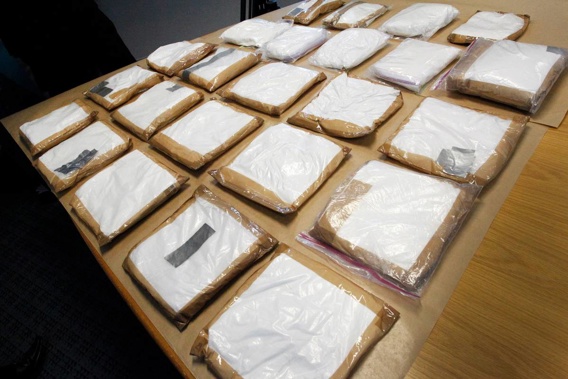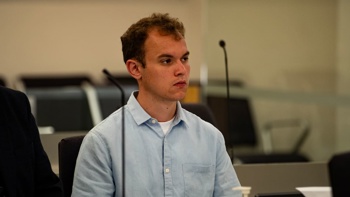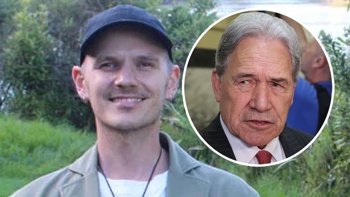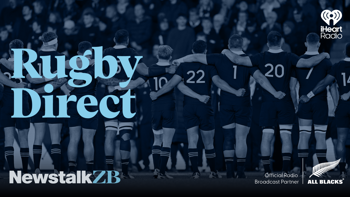
Seizing the bank account of an Irishman who organised backpackers to smuggle $230,000 of cocaine and Ecstasy into New Zealand dovetailed into a two-year global investigation targeting a notorious cartel in his homeland.
The High Court froze a bank account in the name of Francis Gary Fennell as part of a joint inquiry between police in Ireland, Australia and New Zealand.
Fennell left New Zealand but was later charged in Ireland for alleged criminal activity in his homeland and abroad.
Last month, a judge ruled the police had proven Fennell smuggled, or controlled the smuggling, of cocaine and Ecstasy into Australia and New Zealand.
Drug money totalling $233,525 was shifted to Fennell using banks, Western Union and couriers between May 2014 and December 2015.
Justice Gerald Nation was satisfied Fennell had benefited from "significant criminal activity" and $72,739 was forfeited to the police.
The case was taken under the Criminal Proceeds Recovery Act are determined by the civil level of proof, the "balance of probabilities", rather than the higher criminal evidential threshold of "beyond reasonable doubt".
This week the police announced an extra 118 staff would be hired to follow the money of suspected criminals with a goal of seizing $500 million of cash and assets by 2021.
The recruitment drive is part of the Government's promise to hire 1800 police staff over five years, with 500 of those dedicated to focusing on organised criminal groups.
Detective Senior Sergeant Stu McGowan, who runs the police Asset Recovery Unit in Christchurch, said police were tipped off about Fennell by Customs.
"He flew out here for less than a week, opened the bank account and then disappeared," said McGowan.
"Our belief was Irish backpackers were bringing out cocaine for him, bodypacking 300 or 400g at a time. It would get dropped off to an associate Fennell had on the ground running things and deposit cash into his bank account."
Fennell travelled the world spending the money, said McGowan.
"He racked up $230,000 in a short space of time in New Zealand, doing the same thing in Australia too. He used those funds to live the high life."
McGowan confirmed the seizure of Fennell's bank account was linked to a much wider global inquiry.
The account was frozen in February 2016 at the beginning of a two-year investigation led by the Gardai, Ireland's national police force, which led to arrests in Ireland earlier this year.
"He was on their radar. They were quite keen on the evidence we had on the money laundering side of things. We worked with the Australian authorities too, as Fennell had people on the ground there.
"The international agencies worked together to get the result, so it's got to be good."
In April, around 250,000 Euros (NZD$440,000) was found stuffed in a mattress and six people, were arrested in Dublin on suspicion on money laundering.
A press release from the Irish police said the raids were targeting a criminal organisation suspected of drug trafficking in Ireland, Australia and New Zealand.
Irish media reported the drug ring was run by Kinahan cartel, one of Ireland's most prominent crime gangs linked to tit-for-tat murders, money laundering and smuggling drugs from South America into Europe.
Cocaine in Australia and New Zealand fetches higher prices than in other countries and is therefore attractive for international crime groups seeking to make money.
While New Zealand is a small market for cocaine, Kiwis pay the highest price in the world.
According to a 2018 global survey, a gram of cocaine costs $360 in New Zealand which is nearly four times what Americans pay.
As a result, organised criminal groups have been targeting New Zealand and ever increasing amounts of cocaine have been seized in recent years.
In 2016, 35kg of the Class-A drug was discovered hidden inside a 400kg diamante encrusted horse head.
/arc-anglerfish-syd-prod-nzme.s3.amazonaws.com/public/7FUSDZBLTJEETPCTRE3GCG6JZ4.jpg)
/arc-anglerfish-syd-prod-nzme.s3.amazonaws.com/public/7FUSDZBLTJEETPCTRE3GCG6JZ4.jpg) Cocaine worth $14m was hidden inside this diamante encrusted horse sculpture. Photo / Jason Oxenham.
Cocaine worth $14m was hidden inside this diamante encrusted horse sculpture. Photo / Jason Oxenham.
A Mexican cartel is believed to be behind what was the largest ever quantity of cocaine found in New Zealand by a considerable margin.
The following year, an even larger cache was stashed in a secret compartment on the hull of a ship.
Under the cover of darkness in October 2017, police watched as a group of divers approached the Maersk Antares ship which was docked in the Port of Tauranga.
The men retrieved 46kg of cocaine - worth nearly $20 million.
Just a month later, Customs and police stopped 24kg of cocaine in Northland.
"It's all highly organised," Customs investigations manager Jamie Bamford said of efforts to smuggle cocaine into New Zealand in an interview with the Herald on Sunday in June.
"We think Mexican criminal gangs and cartels sit behind this. 'There is a glut of cocaine out there, where can we send it? The Kiwis are willing to pay top dollar, lets go,' is how the cartels think."
/arc-anglerfish-syd-prod-nzme.s3.amazonaws.com/public/A4VTD73W7FDONPGIXCNTNG22D4.jpg)
/arc-anglerfish-syd-prod-nzme.s3.amazonaws.com/public/AAXG3ZK2URBFZOYXDGUXDRBPAY.jpg)
Take your Radio, Podcasts and Music with you









